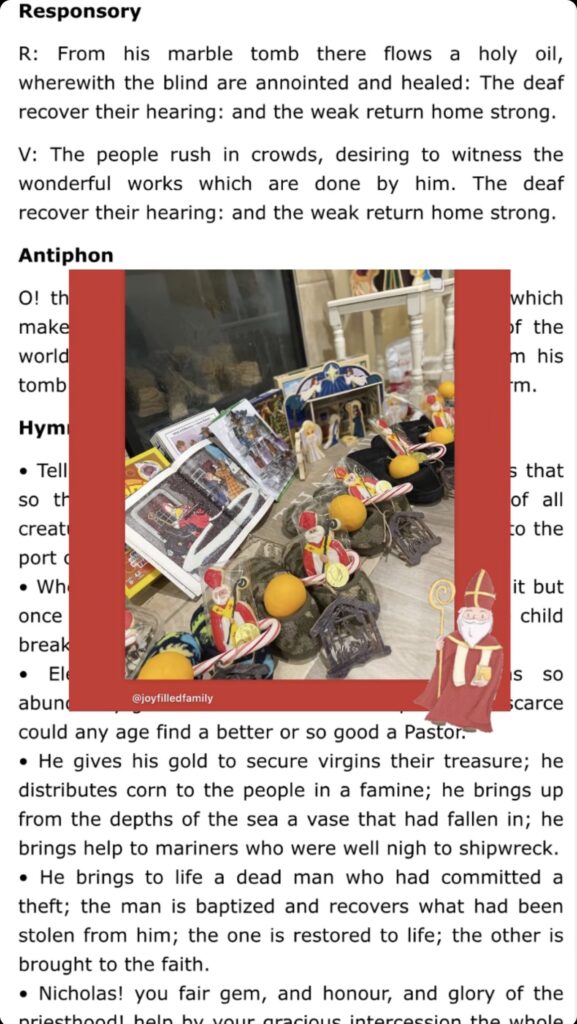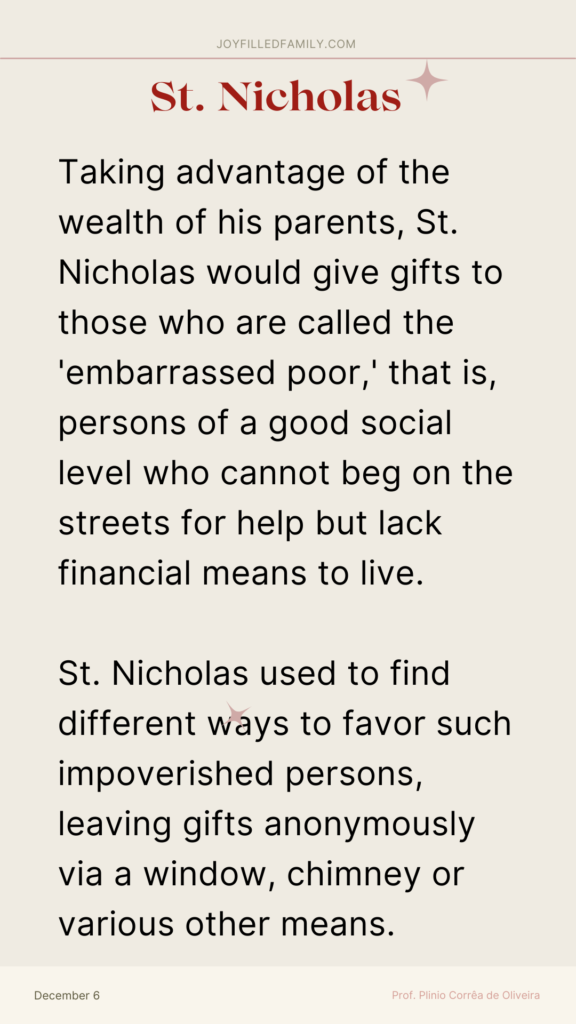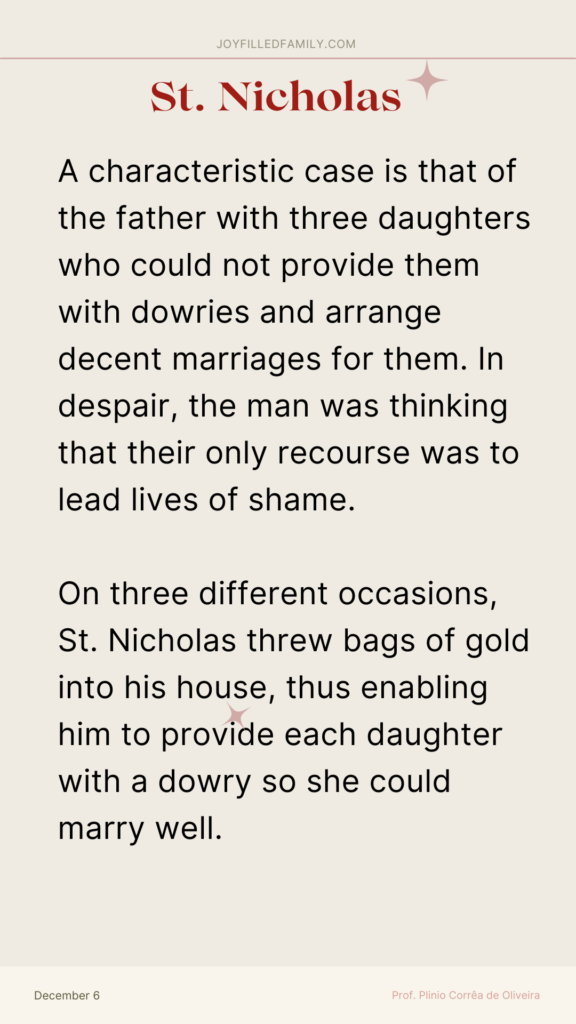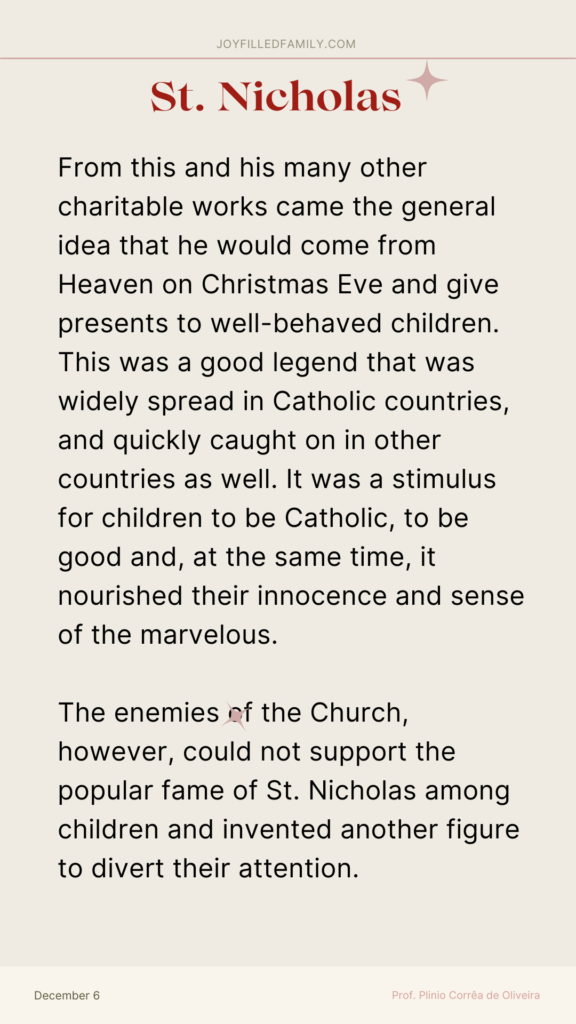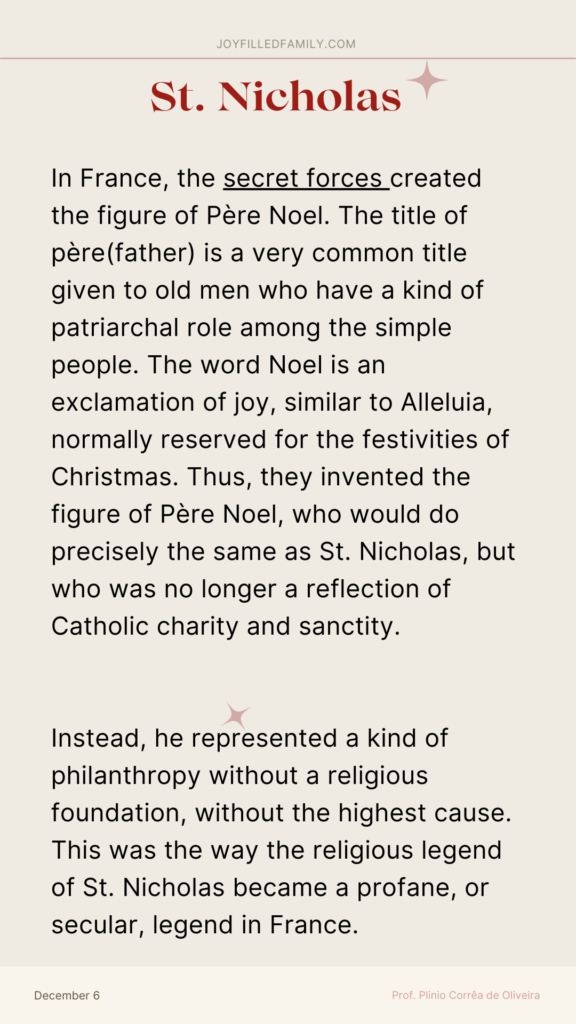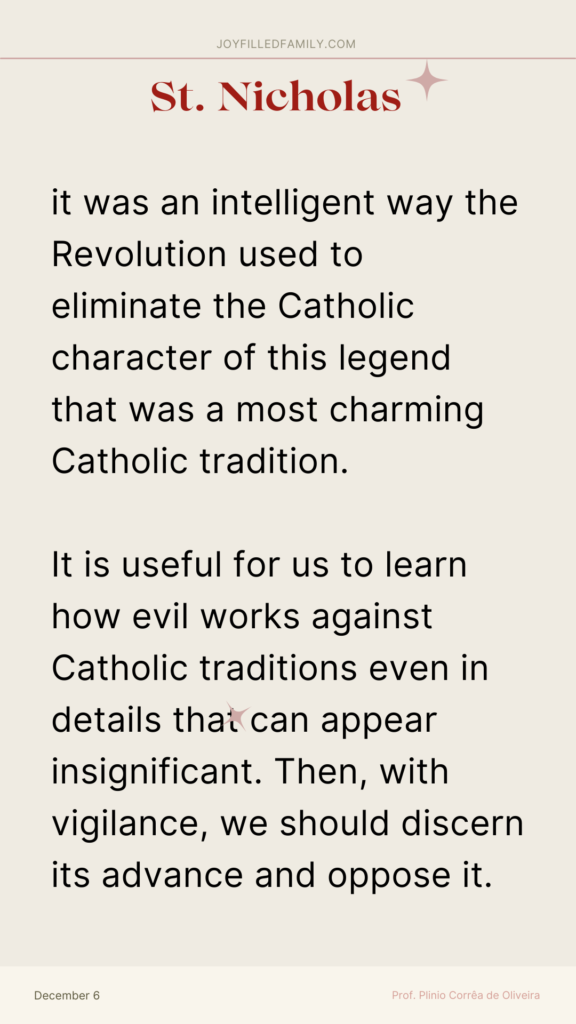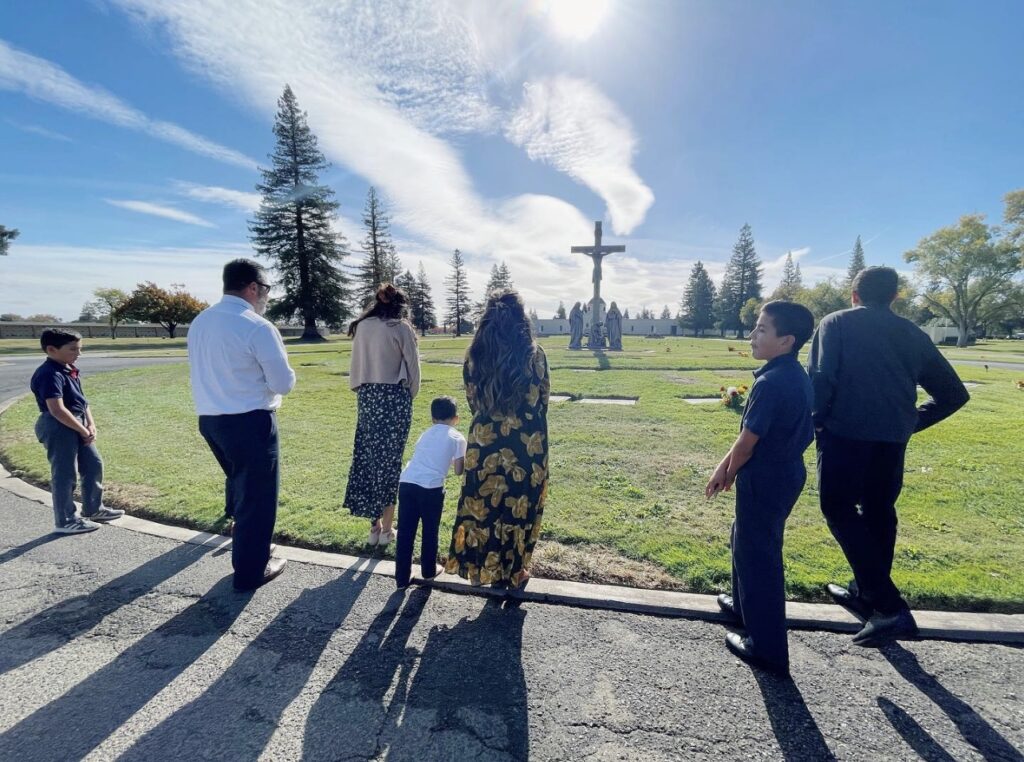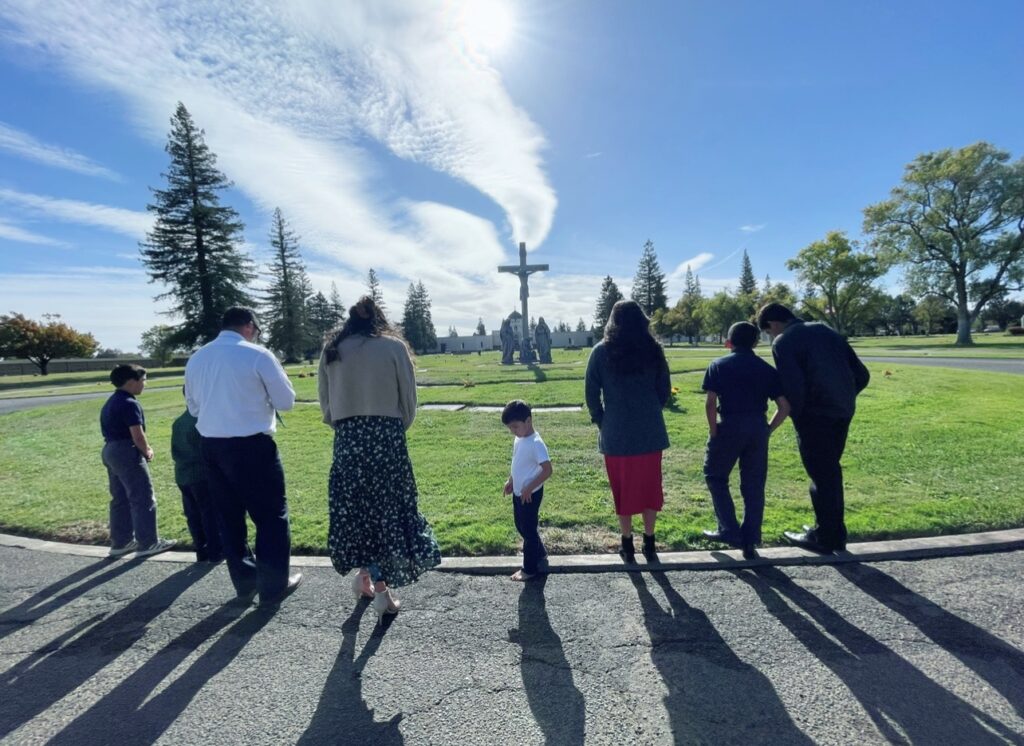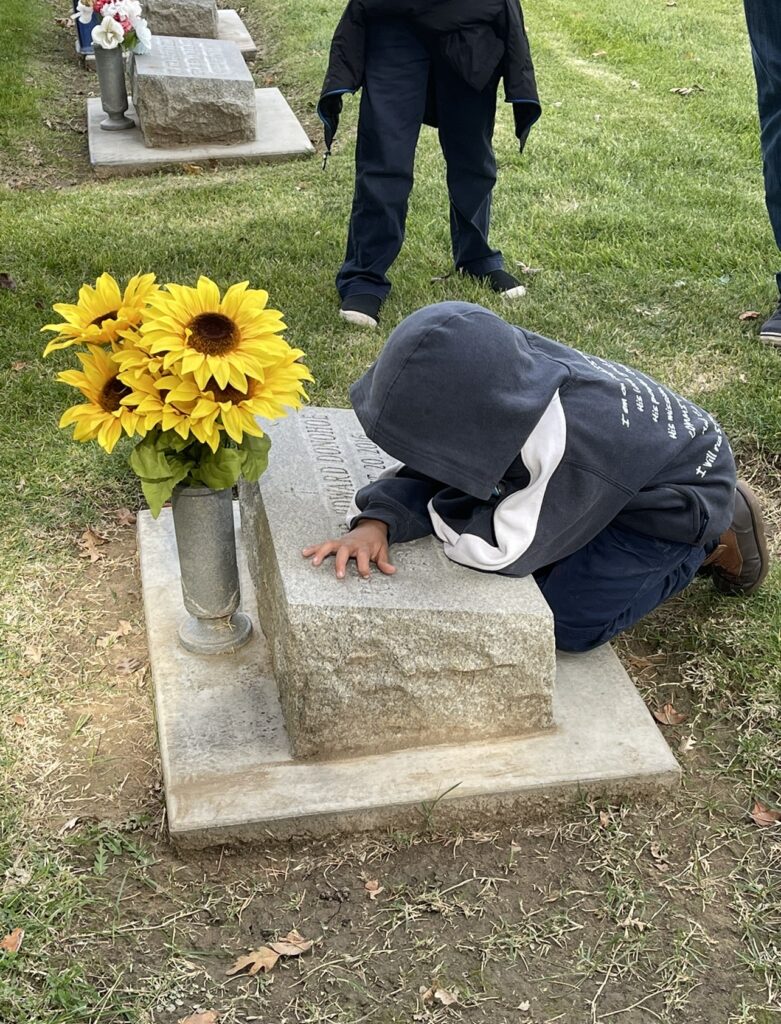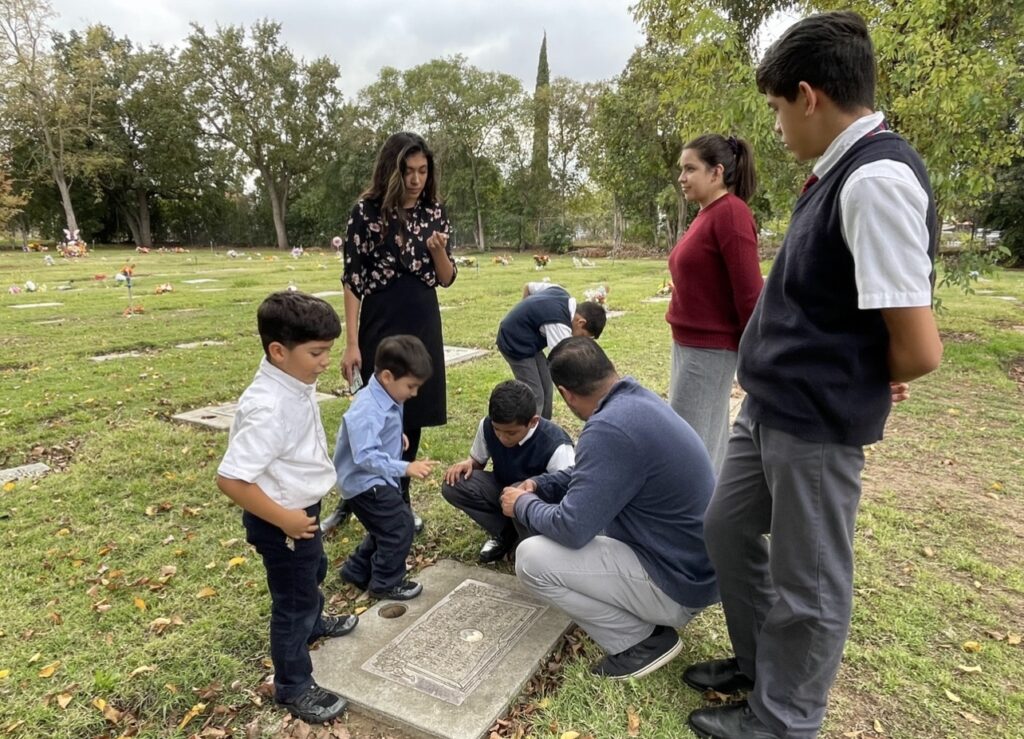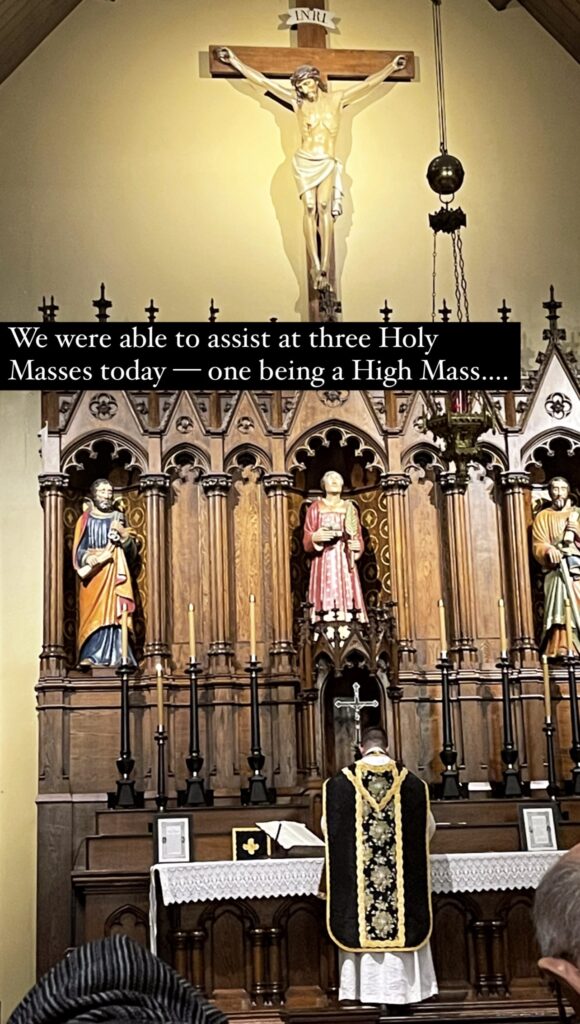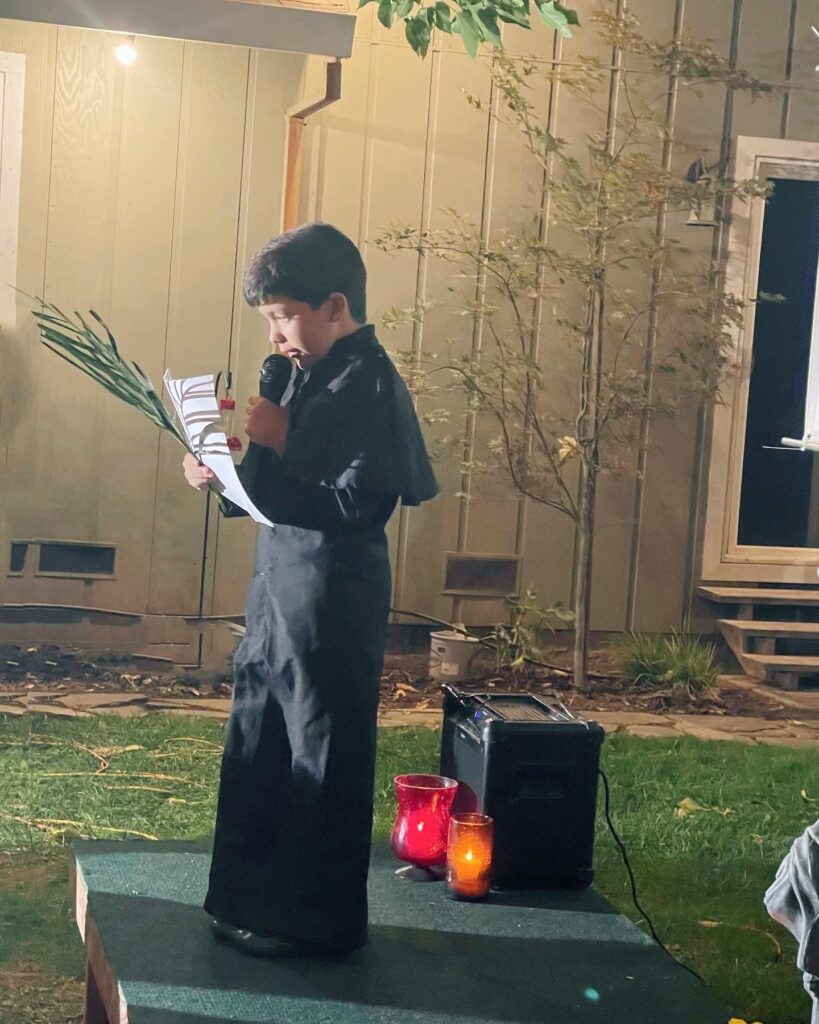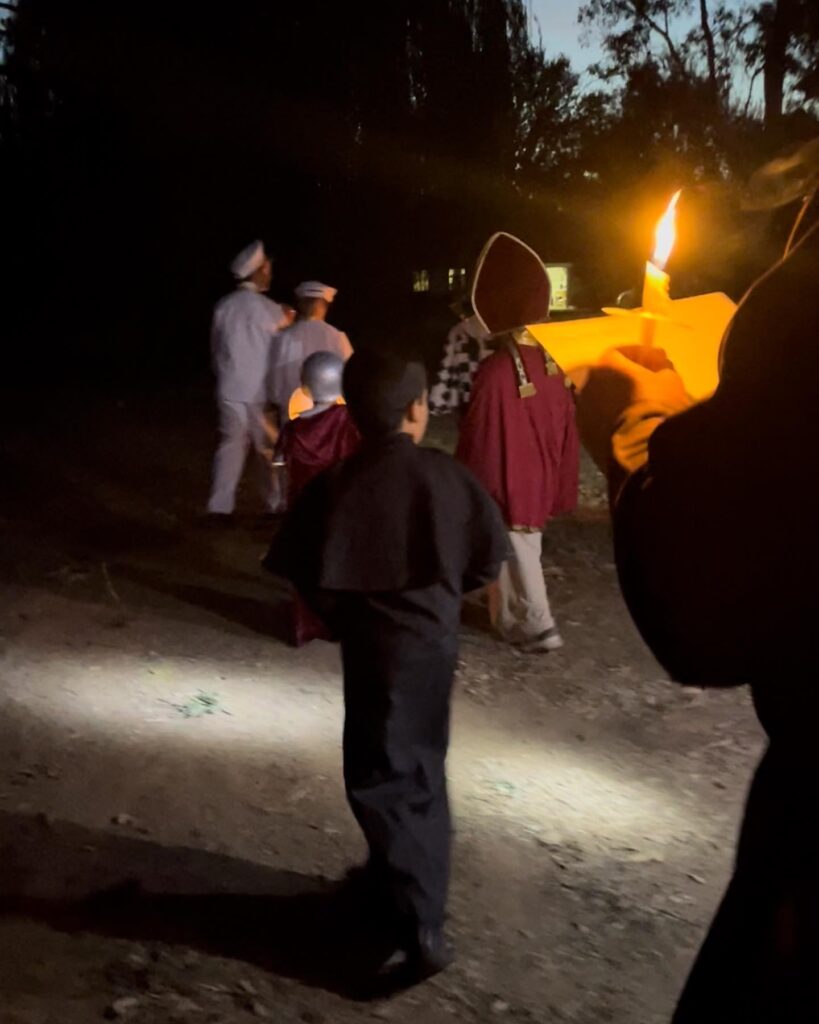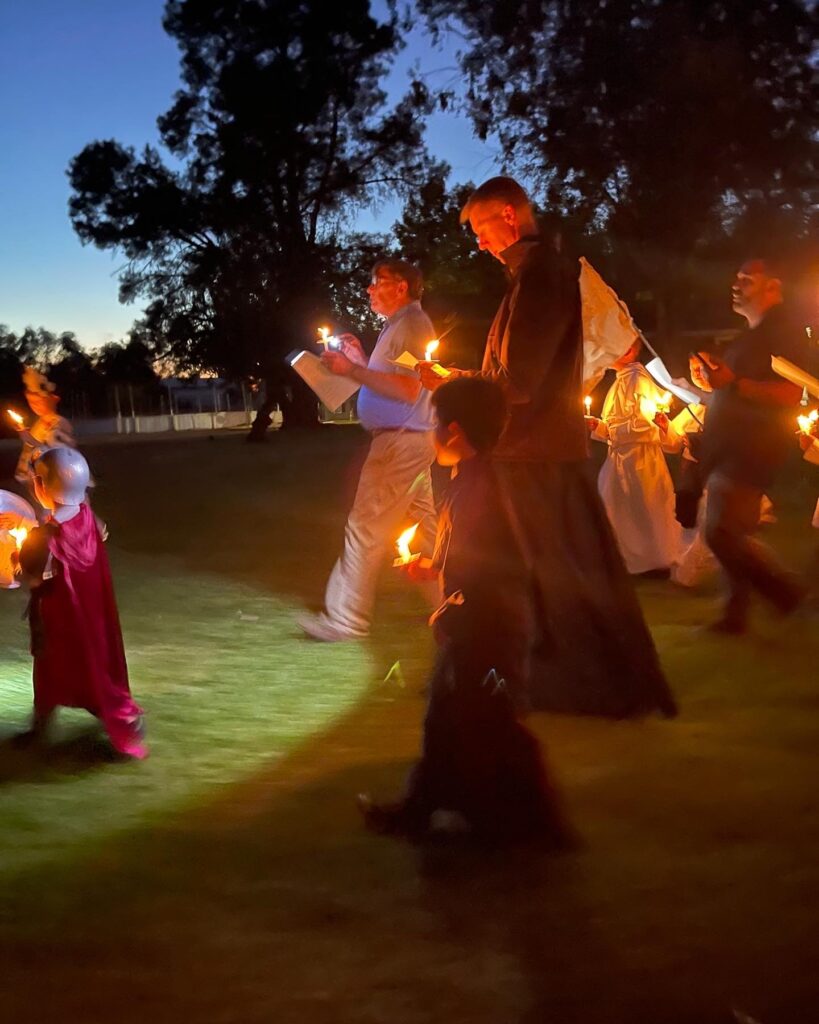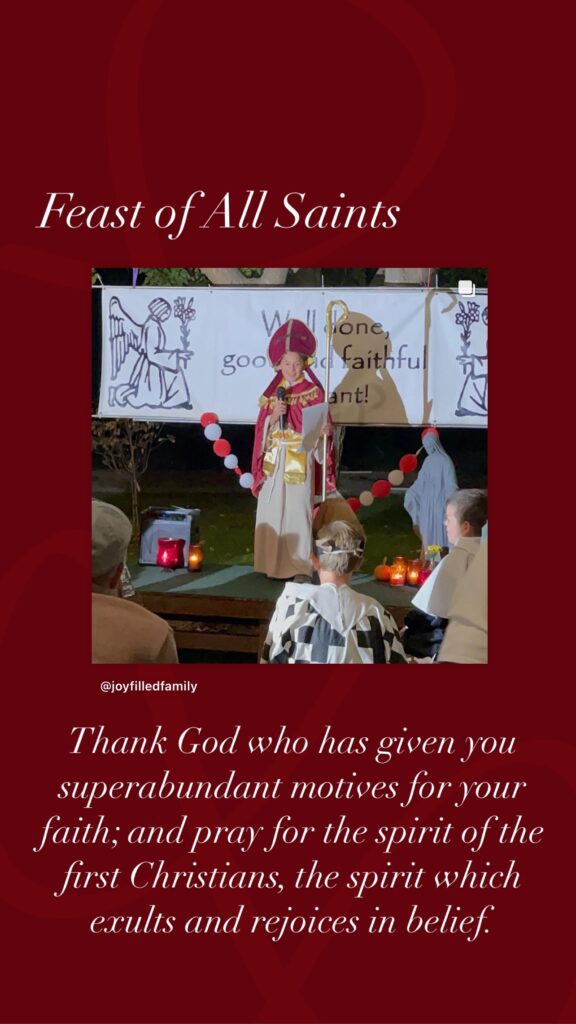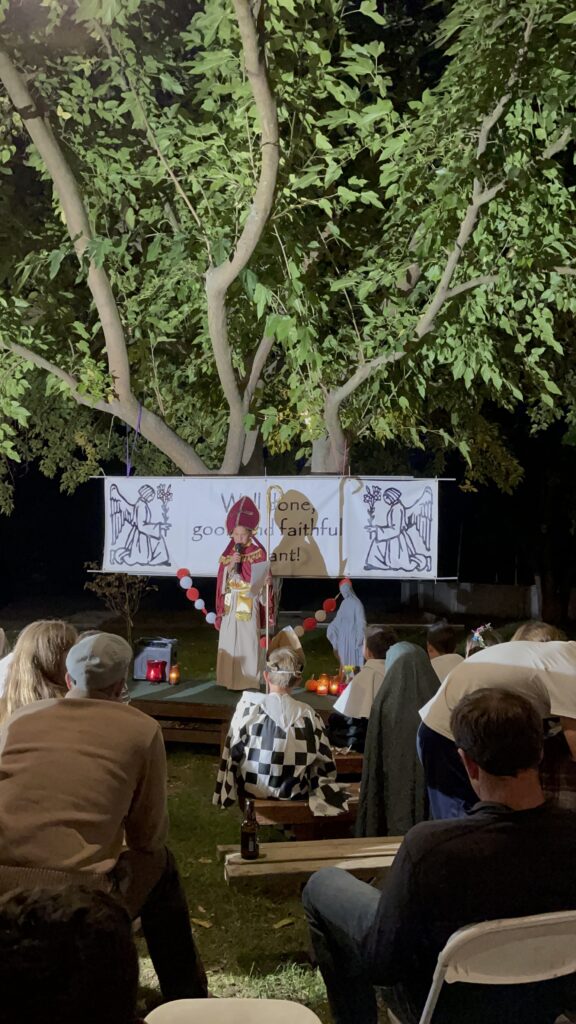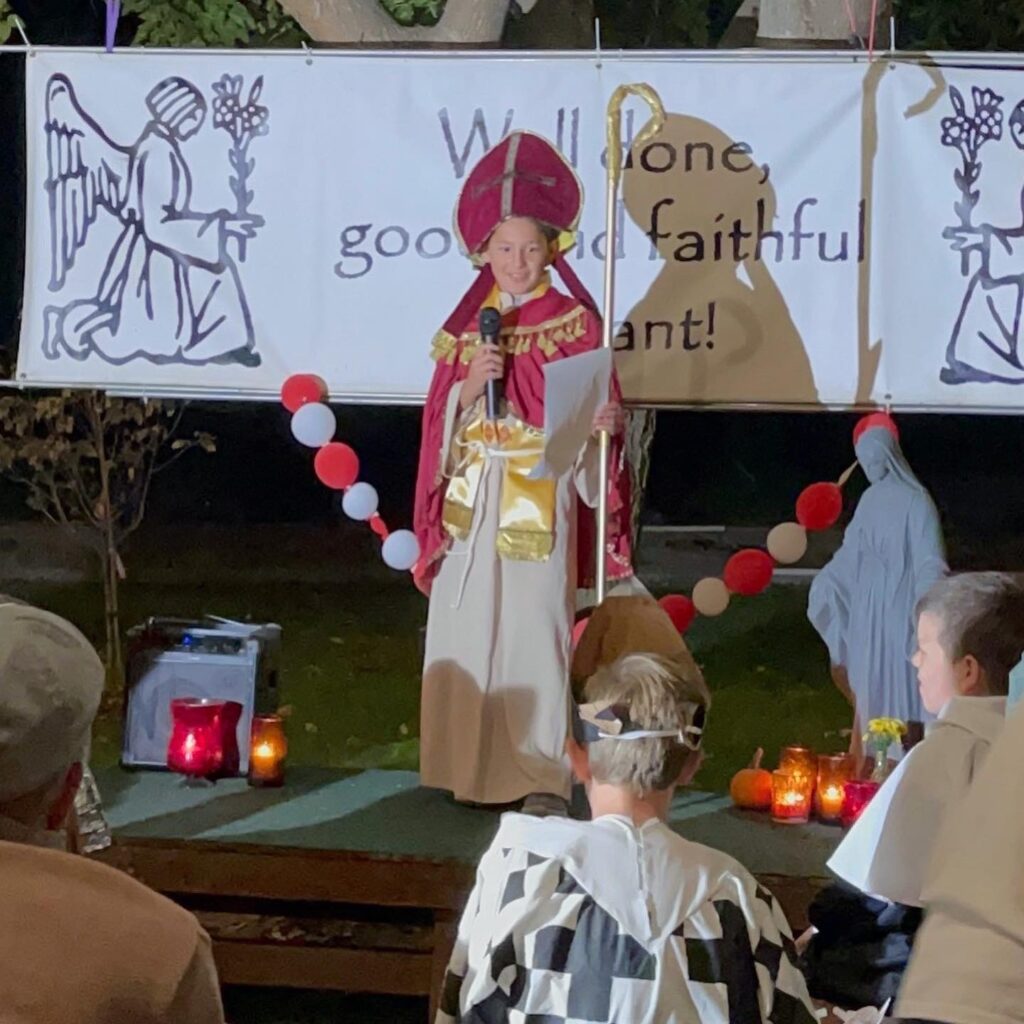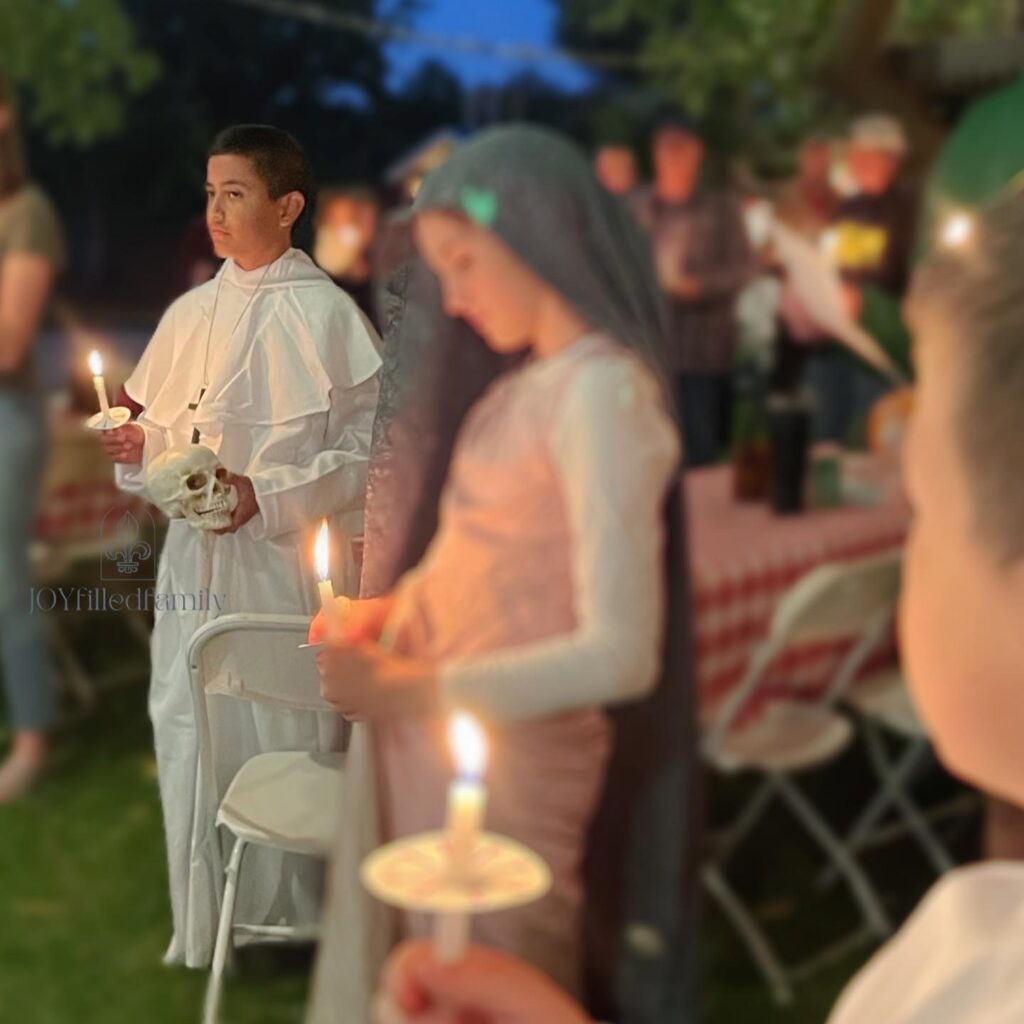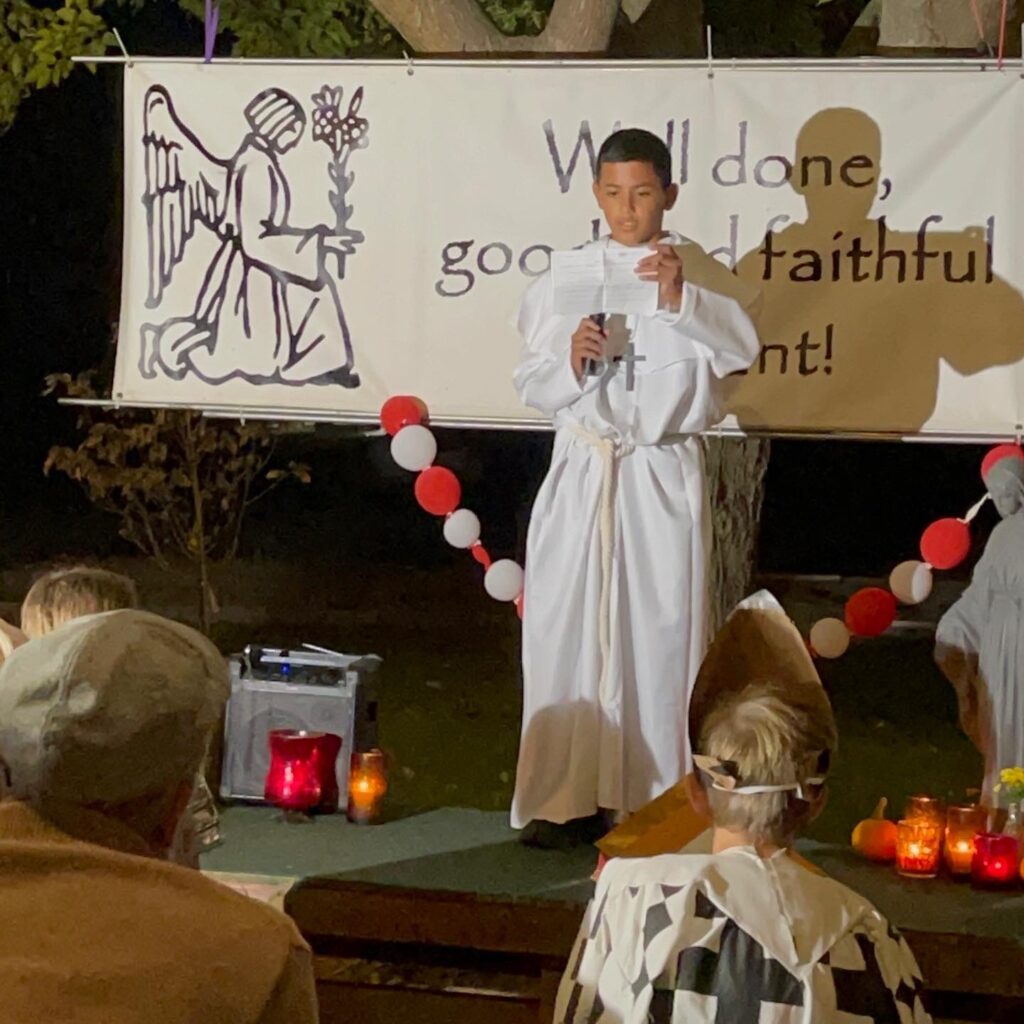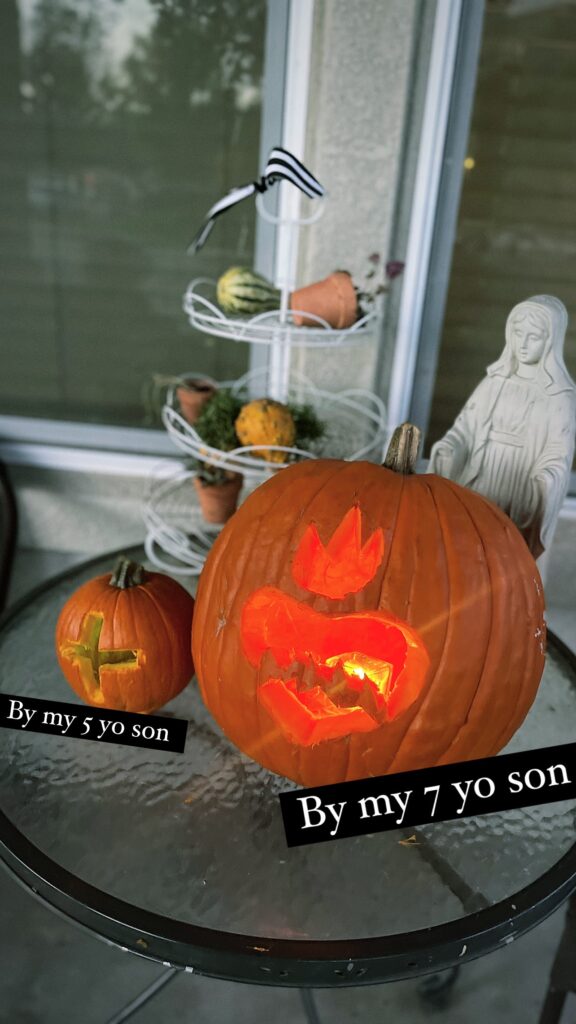I absolutely love that my husband is committed to celebrating the feast days , even when it means that he has to stay up late to distribute treats.

This year is a simple spread. The homemade St. Nicholas cookies made by big sis are the highlight that they’ve all been waiting for. Each child will receive a new pair of slippers, an ornament, a large candy cane, gold chocolate coins, an orange, and this year it is a thrift store find instead of our normal book.
We offer the following prayer of petition…
Holy Pontiff Nicholas, how great is your glory in God’s Church! You confessed the name of Jesus before the proconsuls of the world’s empire, and suffered persecution for his name’s sake; afterwards, you were witness to the wonderful workings of God, when he restored peace to his Church; and a short time after this again, you opened your lips, in the assembly of the three hundred and eighteen Fathers, to confess with supreme authority the Divinity of our Saviour Jesus Christ, for whose sake so many millions of Martyrs had already shed their blood.
Receive the devout felicitations of the Christian people throughout the universe, who thrill with joy when they think of your glorious merits. Help us by your prayers during these days when we are preparing for the coming of Him, whom you proclaimed to be Consubstantial to the Father.
Vouchsafe to assist our faith and to obtain fresh fervour to our love. You now behold face to face that Word by whom all things were made and redeemed; beseech him to permit our unworthiness to approach him. Be our intercessor with him. You have taught us to know him as the sovereign and eternal God; teach us also to love him as the supreme benefactor of the children of Adam. It was from him, charitable Pontiff, that you learned that tender compassion for the sufferings of your fellow men, which made all your miracles to be so many acts of kindness: cease not, now that you are in the company of the Angels, to have pity on and to succour our miseries.
Stir up and increase the faith of mankind in the Saviour whom the Lord has sent them. May this be one of the fruits of your prayer, that the Divine Word may be no longer unknown and forgotten in this world, which he has redeemed with his Blood. Ask for the pastors of the Church that spirit of charity, which shone so brilliantly in thee; that spirit which makes them like their divine Master, and wins them the hearts of their people.
Remember, too, O holy Pontiff, that Church of the East which still loves you so fervently. When you were on this earth, God gave you power to raise the dead to life; pray now, that the true life, which consists in Faith and Unity, may return once more and animate that body which schism has robbed of its soul. By your supplications, obtain of God that the sacrifice of the Lamb, who is so soon to visit us, may be again and soon celebrated under the cupolas of Saint Sophia. May the sanctuaries of Kiev and Moscow become re-sanctified by the return of the people to unity. May the pride of the Crescent be humbled into submission to the Cross, and the majesty of leaders be brought to acknowledge the power of the Keys of Saint Peter; that thus there may be henceforth neither Scythian, nor Barbarian, but one fold under one Shepherd.
Holy Pontiff Nicholas, how great is your glory in God’s Church! You confessed the name of Jesus before the proconsuls of the world’s empire, and suffered persecution for his name’s sake; afterwards, you were witness to the wonderful workings of God, when he restored peace to his Church; and a short time after this again, you opened your lips, in the assembly of the three hundred and eighteen Fathers, to confess with supreme authority the Divinity of our Saviour Jesus Christ, for whose sake so many millions of Martyrs had already shed their blood.
Receive the devout felicitations of the Christian people throughout the universe, who thrill with joy when they think of your glorious merits. Help us by your prayers during these days when we are preparing for the coming of Him, whom you proclaimed to be Consubstantial to the Father.
Vouchsafe to assist our faith and to obtain fresh fervour to our love. You now behold face to face that Word by whom all things were made and redeemed; beseech him to permit our unworthiness to approach him. Be our intercessor with him. You have taught us to know him as the sovereign and eternal God; teach us also to love him as the supreme benefactor of the children of Adam. It was from him, charitable Pontiff, that you learned that tender compassion for the sufferings of your fellow men, which made all your miracles to be so many acts of kindness: cease not, now that you are in the company of the Angels, to have pity on and to succour our miseries.
Stir up and increase the faith of mankind in the Saviour whom the Lord has sent them. May this be one of the fruits of your prayer, that the Divine Word may be no longer unknown and forgotten in this world, which he has redeemed with his Blood. Ask for the pastors of the Church that spirit of charity, which shone so brilliantly in thee; that spirit which makes them like their divine Master, and wins them the hearts of their people.
Remember, too, O holy Pontiff, that Church of the East which still loves you so fervently. When you were on this earth, God gave you power to raise the dead to life; pray now, that the true life, which consists in Faith and Unity, may return once more and animate that body which schism has robbed of its soul. By your supplications, obtain of God that the sacrifice of the Lamb, who is so soon to visit us, may be again and soon celebrated under the cupolas of Saint Sophia. May the sanctuaries of Kiev and Moscow become re-sanctified by the return of the people to unity. May the pride of the Crescent be humbled into submission to the Cross, and the majesty of leaders be brought to acknowledge the power of the Keys of Saint Peter; that thus there may be henceforth neither Scythian, nor Barbarian, but one fold under one Shepherd.
#domprospergueranger #theliturgicalyear
Share an 🍊 in the comments if you’re celebrating this glorious feast with your family.
.
